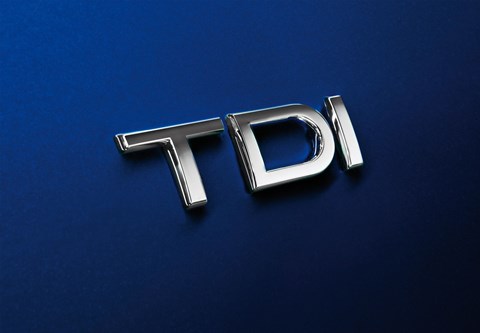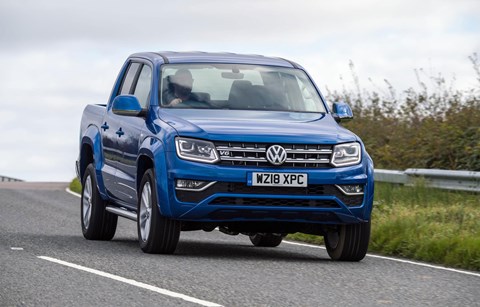► Why we’ll miss diesel cars when they’ve gone
► Mark Walton on why oil-burners rock
► The modern equivalent of steam engines?
In the end, I suppose everything will be electric – electric cars, electric bikes, electric aeroplanes. We’ll get used to it, of course, though I’m not sure I’ll ever fly in one of those electric drone-taxi things. Too scared. Maybe that’s what will mark me out as an ‘old man’ in years to come – I’ll refuse to get on board an autonomous flying pod. ‘I’m not flying in that hairdryer!’ I’ll say, and my grandchildren will mock me for being so stuck in my ways.
But some combustion engines will be harder to replace than others, and – trigger warning – if you love the environment and hate pollution, best look away now, because I’m about to write a eulogy to the diesel engine…
Tesla announced its long-haul electric Semi truck back in 2017 and predicted a range of almost 600 miles. In response, Daimler’s head of trucks said if Musk’s claims were true, the Tesla Semi ‘defies the laws of physics’. Two big issues stand in the way of long-distance electric haulage. First, there’s the aerodynamics. If you’re dragging a big, blunt trailer through the air, you’re constantly loading the motors even to maintain a steady 50mph, draining the battery like bath water down a plughole. The Tesla Semi is streamlined, with a flat bottom and no wing mirrors, but a billboard sign is still a billboard sign, even if you round off the edges.

The other issue is weight. The instant torque offered by electric motors means battery vehicles should be good at moving big payloads, but the problem lies in the fact that the total weight of the lorry is capped. That means the heavier the battery, the less cargo you can carry. Some industry experts have calculated that the Semi battery will have to weigh between three and six tonnes, which means the truck is carrying a couple of Rolls-Royce Phantoms just in battery weight. Time will tell if Tesla has made a major step-change in battery density to make the sums add up.
I was thinking about this the other day as I cruised up the motorway doing a bit of towing of my own. I had to move my Massey Ferguson MF135 tractor – regular readers may remember I’ve written about this amazing machine before. The 135 was blessed with one of the greatest diesel engines ever built, the Perkins AD3.152. This direct-injection three-cylinder is like a Kalashnikov rifle, which they say you can bury in the desert for 10 years and when you dig it up again it’ll still fire. The engine in my 135 was actually found in a hedge – literally in a hedge – and after it was cleaned up and fitted to the tractor it started first time.
While it’s easy to imagine an electric car rolling along smooth tarmac on low-resistance tyres, it’s harder to picture an electric tractor, dragging a plough through high-resistance mud all day. John Deere developed an electric tractor a couple of years ago and claimed it could run for four hours between charges, which makes it absolutely useless for a farmer who wants to work a 20-hour day to beat the weather. For now, my 50-year-old diesel 135 tops all available clean technologies.

Which brings us to my tow truck, a Volkswagen Amarok pick-up, fitted with the latest 3.0-litre V6 TDI. This monster of a car – over 5.1 metres long – can churn out 428lb ft of torque from just 1400rpm. That means, even with a heavy load on the trailer, you just squeeze the throttle to get that creamy V6 wave of forward motion. On the motorway it felt effortless, coasting along with that unmistakable manner of a car with plenty in reserve.
What I’m saying is, there’s something wonderful about a big car shoved along by a massive turbodiesel. I know that’s deeply unfashionable – offensive even – but it’s such a specific sensation, with a very particular sound. And the psychology of it, that robust, unstoppable feeling – when I filled up the Amarok with diesel halfway home and climbed back in, I felt like I’d just stacked the woodshed with freshly cut logs.
Yes, in the end everything will be electric; and, I know, the sooner the better as far as air quality is concerned. But I reckon in years to come we’ll look back on our turbodiesels like we look on steam engines now. Out of date, yes, but magnificent all the same.
Should you still buy a diesel car? We look at the pros and cons